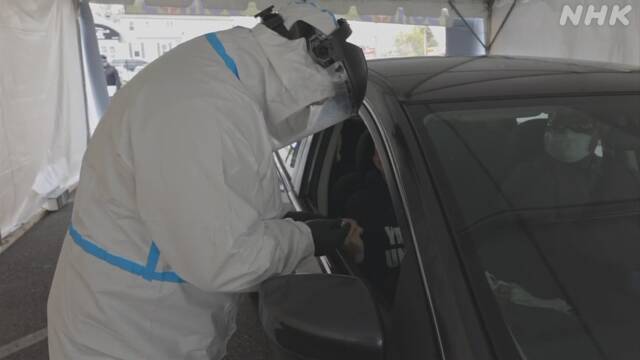New York State, the number of infected people in the United States, announces the start of "antibody test" April 21, 6:46
k10012397811_202004210643_202004210645.mp4
The state of New York, which has the highest number of new coronavirus infections in the United States, announced on the 20th that it has started an "antibody test" to check the blood of residents for antibodies to the virus. The local governor thinks that it will be one of the criteria for easing restrictions on going out and resuming economic activities, but it has been pointed out that there are unclear points such as the possibility that people with antibodies will get infected again.
An antibody test is a test for the presence of "antibodies", substances that are produced by the immune reaction to viruses contained in a person's blood. Whether or not a person has been infected in the past even if there were no symptoms at the time of the test. You can know
In New York, which has the largest number of people infected with the new-type coronavirus, at 247,000, the antibody test for the residents started on the 20th.
The target population is 3,000 randomly selected inhabitants, who will be tested at local grocery stores to collect blood from their fingers.
According to state health officials, the result will be available in about a week.
Governor Kuomo said, "The results of the test show the proportion of people actually infected to the population, and it is thought that these people are immune to the virus for the time being. In determining the timing of relaxation of going out restrictions and restart of economic activities, Will be the data at. "
Although antibody testing has begun in all parts of the United States, experts at the WHO = World Health Organization said, "No one knows if a person with the antibody will get reinfected." He points out that there are many points, and attention is focused on how the inspection results are used for policy decisions.
Determined by European country
In Europe, different countries have different judgments regarding antibody testing.
Of these, the Netherlands is active in introducing antibody testing, and the state health agency, the Dutch Institute for Public Health and Environment, announced last month that it has begun researching antibodies to approximately 6000 people, including children.
The study says that by comparing a sample of a blood test conducted in Japan three years ago with newly collected blood from the same subject, it is possible to understand how many people have acquired the antibody .
The study will be continued for a year and a half, and may also reveal the useful life of the antibody.
In addition, the Dutch blood bank conducted an antibody test earlier this month on approximately 7,000 people over the age of 18.
So far, about 60% of the subjects have been analyzed for blood, and it has been confirmed that about 3% of them have antibodies.
The blood bank will carry out another test of the same scale next month for further analysis, and will provide the obtained data to the government.
On the other hand, the UK says that it will take time to carry out the antibody test, and France is still cautious.
The UK government has a policy of conducting antibody tests, and although a group of experts is proceeding with verification of a test kit that allows easy testing at home, it has not obtained sufficient results to implement it.
For this reason, it is said that it will take some time to carry out the antibody test at this stage, as it will lead to the public's misconception.
In addition, the French government has many uncertainties as to whether it will not be infected by a virus by having an antibody and how long the antibody will be effective, and it is cautious about the implementation itself because the antibody test is not reliable.

